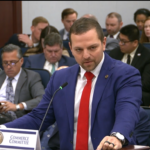From time to time, my doctor prescribes a treadmill test to check out how strong my heart is. Perhaps you’ve experienced this test, but in case you haven’t, the idea is to make you run faster and faster up an increasingly steep hill. It becomes a miserable experience pretty quickly. The best thing I can say about it is, it’s over quickly.
That’s how I think about recruiting talent in the insurance business. The challenge becomes steeper and steeper — but, in this case, it’s never over!
Last month in this column, I offered tips on how to best approach the talent crisis, encouraging readers to realize that they are as much the interviewee as the interviewer in the current job market. I explained that agency owners and operators now have to sell the benefits of working at their agencies to candidates, whether it be flexible work arrangements, a relatable and inspiring company culture, benefits or something else. Further, I noted that agency owners and operators need to approach prospective employees much as they would sales prospects, addressing with them the “what’s in it for me” question.
Now, I want to take this a step further. Here, I’ll talk about additional ways agency leadership can approach hiring by putting less of a focus on previous work experience, more of a focus on recruiting from industry sectors with declining employee demand and again, by engaging in an “always on” approach to hiring.
Currently, more people are looking for someone to hire than people who need or want a job. Like the ever-steeper hill in the treadmill test, the challenge of finding the people you need to grow your business is likely to get tougher over the next couple of decades.
As with most challenges though, there are opportunities for those willing to think differently and experiment with their approach to recruiting. These three opportunities (or mind set changes) could serve as difference makers for agencies:
Focus on natural abilities instead of prior education, skills, training, or job experience. I came into the independent agency business in my middle 30s after a career in property management and politics. I had been in our state legislature and ultimately ran in a statewide election and lost. Before that campaign, I had sold my business, in a “burn the boats” commitment. So, after the election was over, I needed to find a new career. A close friend suggested that I put my people and business skills to work in commercial production and agency management. There, I found not only success but lifetime career fulfillment.
What my future partner saw in me was transferable skills, aptitude and ability. Over many years, we hired others with no industry experience, who excelled in insurance just as I did. They included a restaurant hostess who became a commercial CSR, a human resources executive who became our agency manager, a telemarketer who became a personal lines account executive, and a private school business manager who became our customer service manager, among others.
Our industry offers considerable potential for work flexibility, which modern employees crave, higher compensation opportunity, which is always attractive, and a never-ending upward growth path for those who want it. Combining these benefits with the chance to spend their days doing work for which they are naturally gifted creates an irresistible opportunity for agencies to hire great people who may have no industry experience or even interest.
An obvious objection to looking for employees in this manner is that they won’t have the job specific skills that you need, and it may be expensive in terms of time or training costs to bring them to full productivity. While I acknowledge this as a concern, I think it can be mitigated with a carefully thought-out training plan and teamwork. Further, the cost of having the position unfilled or hiring another industry veteran with bad habits likely outweighs those costs. In my experience, people new to the industry find ways to translate their skills quickly in meaningful ways.
Look for talent with translatable skills in industries with declining employment. The practice of hiring producers out of target industries is fairly commonplace. But targeting people in a declining industry is something I don’t see very often. As an example, in the United States the number of community banks has been steadily declining for a long time and that trend is likely to continue. Former bank employees can serve as a strong talent pool for agency staff. Loan officers are sales people whose skills easily translate to commercial insurance production. Universal bankers (also known as tellers and customer service agents) have the skills to get up to speed as agency service personnel quickly. Bank accounting and compliance employees also have easily transferable skills for agencies.
Employment in the college industry is similarly slowing and it’s easy to see how former college administrators, teachers, coaches and others could find a productive place on an insurance agency team.
Retail businesses of all kinds are fewer in number and continue to decrease. Many retail sector jobs translate well into agency positions including accounting, cashier, clerk and sales. Legal secretaries and office administrative employees also face dwindling opportunities and recruiting in those areas could introduce your team to out-of-the-box agency thinkers.
The essential point is that there are many potential employees with no insurance industry experience who face declining employment prospects despite robust demand for hiring overall. Economic demand is always changing, as are the jobs that support it. This will be a key opportunity for finding talent going forward.
Focus on long-term recruiting instead of short-term hiring efforts. Most agencies are small(er) businesses and can’t afford to hire people they don’t currently need. But they also cannot grow without the right number of staff and many face constant shortages that hamstring their opportunities. In a tight labor market like the one we will face for the next couple of decades, hiring only when you have an opening will be an even less effective strategy than in the past.
Hiring Differently
As I mentioned in last month’s column, the antidote to crisis hiring is never-ending recruitment. Agency owners should always be looking for people, continually posting about opportunities in various marketing media, pro-actively telling clients, team members, carrier partners, employees, etc. about the opportunities they have and the culture they have created. In this way, agency owners never stop meeting people who might be a good mutual fit and never stop having visioning conversations (also known as “interviews”).
Sometimes this will result in meeting someone perfect for a position for which you don’t have a current opening. This is a great opportunity to accelerate your company. Dan Sullivan, founder of “The Strategic Coach Program,” says that “a great team member never costs you anything.” And if you view people as your greatest asset, you can’t help but agree. A new, unplanned, hire is just a temporary cash flow interruption, not an expense.
Importantly, by putting your agency in a position of always recruiting you lose the acute crisis mode of hiring and put yourself in the position to wait until you find the best candidate.
Additionally, by taking a perpetual view of recruiting, you can be strategic about looking for people from non-insurance backgrounds with no concern about the time required to “bring them up to speed” in the agency.
Finding and retaining the talent needed to maintain and grow the business will likely remain the agency’s biggest challenge for as far into the future as most of us want to look. The competition for the best people already employed in the industry is set to get increasingly fierce. Searching, developing and hiring differently than most everyone else can be a differentiator for those looking for new ways to win the war on talent.
Topics Talent Training Development
Was this article valuable?
Here are more articles you may enjoy.



 Deep Freeze and Drought Fueled a Massive Florida Wildfire
Deep Freeze and Drought Fueled a Massive Florida Wildfire  Marine Insurers Cancel War Risk Cover as Iran Conflict Escalates
Marine Insurers Cancel War Risk Cover as Iran Conflict Escalates  AI Lost Out to Traditional Models in Forecasting NYC’s Blizzard
AI Lost Out to Traditional Models in Forecasting NYC’s Blizzard  Florida OIR Slams Committee-Approved Clearinghouse Bill Changes as ‘Illusory’
Florida OIR Slams Committee-Approved Clearinghouse Bill Changes as ‘Illusory’ 


